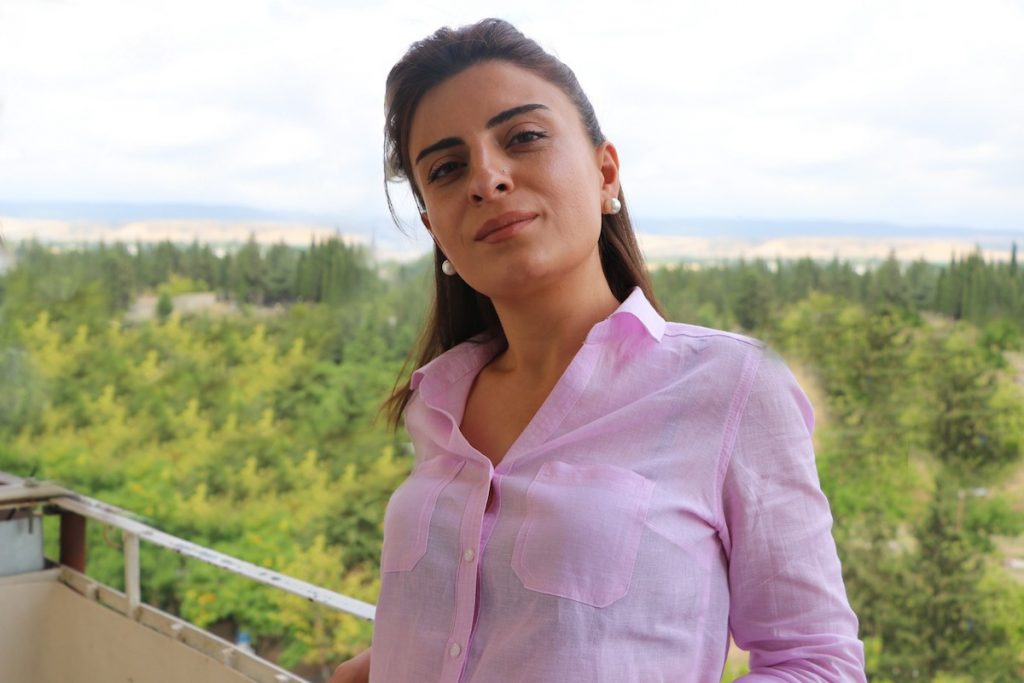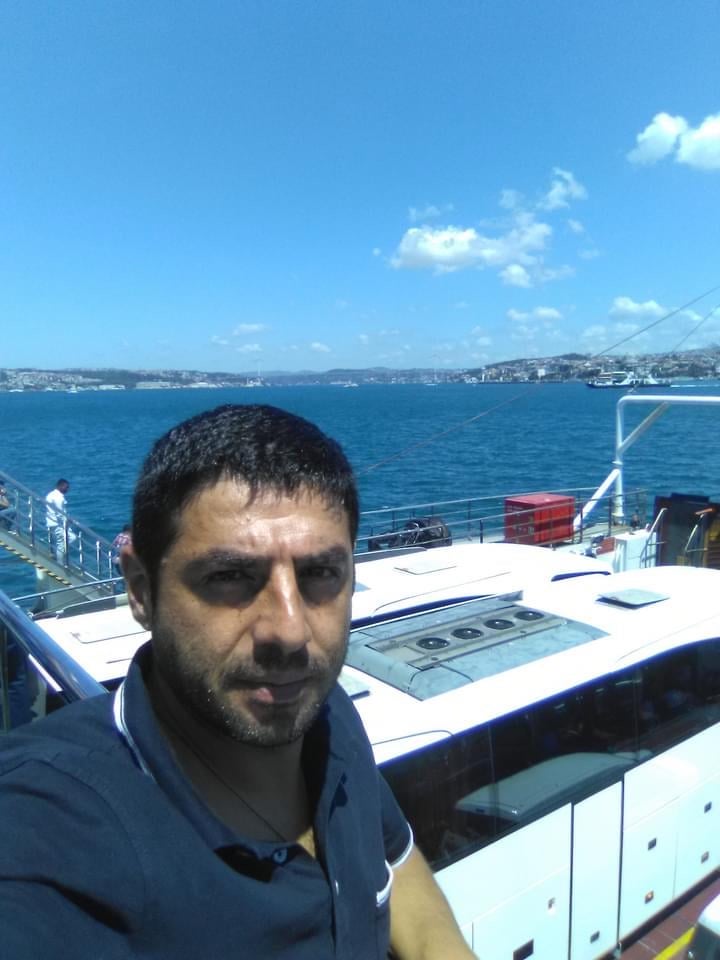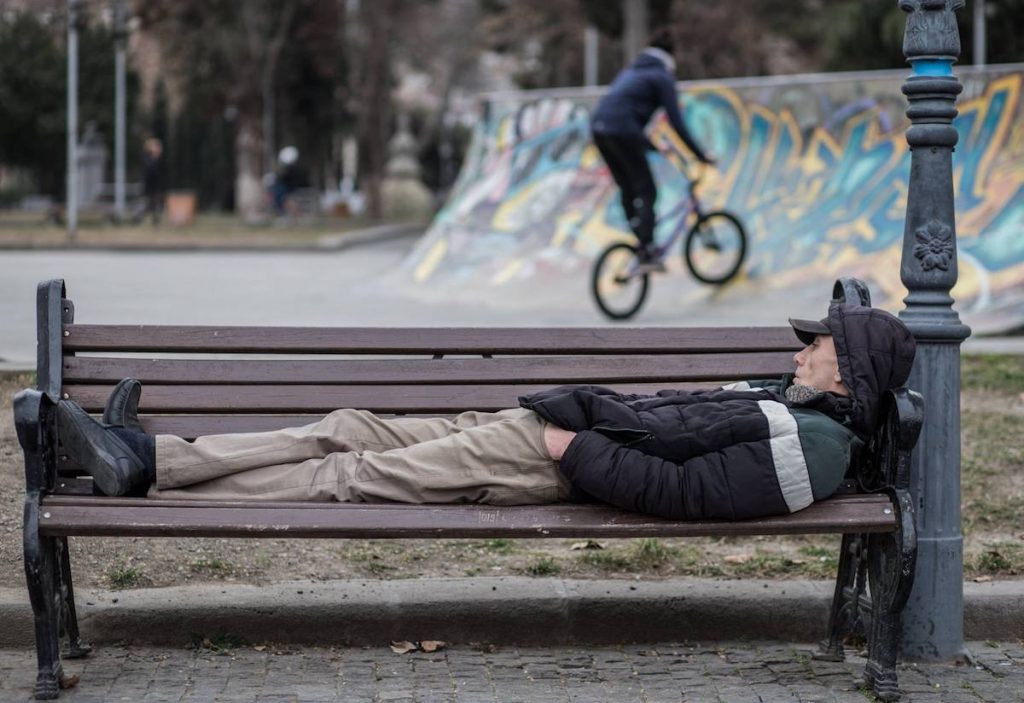‘Losing work isn’t the worst that can happen during COVID’ – stories of Georgian workers stranded abroad
Migrant workers have become one of the most vulnerable groups during the coronavirus pandemic. Torn from their homelands, far from their families, many of them have been deprived of their livelihoods. This crisis is no less pertinent to the inhabitants of Georgia who have left to work abroad. For many of them, the loss of their jobs is not the worst thing. Rather, sometimes the impossible task has been to return home. The pandemic has once again shown just how Georgia depends on the migrant workers and the money that they send home to their families.
“60% of those who can work have left”
Emigration from Georgia has grown over the years, as confirmed by official statistics. According to the data, the number of people who had left the country was 105,000 in 2019.
Experts, however, do not trust these figures. According to unofficial data, at this moment about 1.6 million Georgian emigrants, having left their country behind at different times, are living abroad, says financial specialist Zviad Khorguashvili.
The country’s population of people who are fit to work is two million out of a current 3.7 million. If you take into account that some people who are formally considered unfit for work, such as retirees, have also left the country to work abroad, then you could estimate that about 60% of Georgia’s work force has gone abroad, explains Khorguashvili.
“According to unofficial data, tens of thousands of families in our country live entirely on money sent to them from abroad. Consequently, when those countries, from which this money is coming, experience hardship, it often has a serious effect on our economy”.
• Poland: a work haven for Georgians
•South Africans setting up in rural Georgia: reasons, challenges and hopes
One example of such a crisis was in 2014, when the Russian economy started having serious problems due to the war with Ukraine. Then the amount of money being sent to Georgia from Russia decreased significantly, leading to severe drop in the exchange rate of the national currency.
Which happened this time too.
According to data from the National Bank, Russia is first place in remittances to Georgia, with 21 percent of the total. Then Italy (15 percent) and Greece (11 percent). The COVID-19 crisis initially affected Italy, then the majority of EU countries.
A sharp fall in remittances to Georgia started in February, 2020. The total decreased from 137 million dollars in February to 79 million in April.
Teona: the uninvited guest
Teona Tvalavadze is the single mother of an 11-year-old daughter. For some years she worked as a croupier in Tbilisi. The money wasn’t bad, by Georgian standards, but the work was hard.
The idea of going to Europe to work come to her after her childhood friend went to Greece to work as a senior care nurse. This same friend helped Teona find work in Athens as a waitress in a café. There was no big difference in pay, but the important thing for Teona was that the work was not so hard and stressful.

Teona planned to work for one season, come home, and then decide if she should go back again to work for a longer time. Everything was going smoothly at first. However, three weeks after starting to work, the café closed due to the pandemic, and Teona lost her job.
“To be honest, I didn’t see it as a tragedy. I had some savings, enough to get a ticket home. I was even happy to see my daughter earlier than I thought I would”, said Teona.
She asked to live with the family where her friend worked. She was sure that she would be going home soon. But it would not be so easy.
The Georgian government stopped all air travel and organised special flights for Georgian citizens returning from abroad. Not for free, though. Tickets could be bought online for the fixed price of 199 euro, only on a specific day at a specific time. Teona couldn’t manage to do so. She couldn’t get into the system because of unidentified technical problems (it later turned out that very many people had the same issues). She called the consulate, who told her that the next flight would be in 20 days, they could not help her with buying a ticket, and they couldn’t offer Teona a place to stay.
Teona once again was forced to ask the Greek family to let her stay with them. She was allowed to, but she began to feel like she was overstaying her welcome with the family who had taken her in.

“For days on end I sat in my room and tried not to go out so I wouldn’t bother my hosts. They were so frightened and worried about the pandemic”.
But Teona couldn’t get on the next flight, 20 days later, either. Once she made it into the system, she discovered that all the tickets were sold out. Calling the consulate, once again, didn’t help.
Teona now found herself in a desperate situation. Having lived for two months as an uninvited guest among a strange family, she took a third option. Since Greece’s border with Turkey was closed, per usual, she bought a ticket to Istanbul via Austria, thinking she could get to Georgia from Turkey.
Happy to finally have a ticket, she packed her belongings, warmly thanked her hosts, and went to the airport, where she soon discovered that they would only let her on the plane with a so-called “covid passport”. Getting tested was only possible in the city for 150 euro. So the plane left without Teona.
“I sat on the airport bench and cried. They I called my friend and asked the family to take me in again. But they refused”.
She no money left at all. In desperation, she got in touch with some compatriots of hers who were living in Athens. Luckily, a woman answered who was willing to take her in.
In the end, Teona, thanks to financial help from her family and friends, managed to get back to her homeland. She took a plane to Turkey, and then a bus to the Georgian border. She is no longer considering working abroad and is hoping to find a job in Georgia.
Koba: is it worth it to go?
Koba Mamisbedashvili’s story is similar to Teona’s. He arrived in Greece on 22 February, having left his wife and two small children in the village of Dedoplistskaro in Eastern Georgia.
Koba was hoping to make some good money in Greece, even more so considering his sister was living there with her Greek husband. Koba’s brother-in-law worked in construction and promised to help him find work.
But quarantine started literally on his arrival in Greece, and all construction stopped.
Koba had to stay with his sister’s family, where everyone had been left unemployed due to the pandemic. This uncomfortable visit was made more difficult by the fact that it was impossible to get back to Georgia.
He couldn’t buy a ticket for the flight on 7 April. In fact, he couldn’t even get into the system. The consulate offered no real help. The only good thing about the situation was that Koba didn’t have to sleep in the street.
Koba’s 90-day legal residency period came to an end. But he still couldn’t get back to Georgia. Greece had closed her borders, but the local police, as if they had no idea, still demanded that foreigners abide by the residency laws and threatened offenders with fines and deportation. He couldn’t solve this problem with government, no matter how hard he tried.

When the borders finally opened on 1 July, Koba was fined 600 euro at the border even though he tried to explain the situation to the border guards and attempted unsuccessfully to get in touch with the Georgian consulate.
While his brother-in-law paid his fine, Koba intends to pay back the debt.
“Finally, I made it home safe and sound! It was my first trip to Europe. Sometimes I think it wasn’t worth it to leave my wife and kids for such vague and uncertain plans. Then sometimes I think it would still be worth it to try my luck again for the sake of my future child…”, says Koba, who is still unemployed in Georgia.
Lasha: work is not the most important thing, it’s getting back to my family
At the beginning of the pandemic Lasha Gunava (name changed) had already been working for three years in the Italian city of Bari as a construction worker. He had adapted, getting a work visa, bringing his family to Italy, and not planning to return to his homeland.
In February of this year he had to take what was supposed to be a short trip to Georgia to visit his father, who was about to have a difficult surgery. His trip coincided with the coronavirus outbreak, and the borders closed.
“At first I hoped that everything would be over in two or three weeks, and I would get back to my family and work no problem. I couldn’t imagine that the whole world would just stop in an instant. I can’t even begin to express how I felt when I realized that it was serious, that I couldn’t see my wife and children who I had left alone in a foreign country for who knows how long”.
What little the family had saved over three years of working in Italy was not even enough to get them through two months. Lasha spent a lot on treatment for his father as well.
“I lost my job (in Italy). Who needed me there? But I wasn’t worried about that. I was just worried about my wife and kids. They don’t know a word of Italian. There’s nobody to take care of them! Here (in Georgia) it’s hard for everybody, which is why none of my relatives could lend me money to get back. And the tickets are so expensive! I’m probably gonna have to find temporary work in Georgia, so I can make money for the trip and help my wife and kids from here”, says Lasha.
Low-cost airlines are not flying in Georgia. And prices for chartered flights out of Georgia and the few regular flights to Germany, France, and the Baltic countries, which have been allowed by the government, have shot up. It can cost more than 500 euro for a one-way ticket.
Levan: COVID-19 as a new opportunity
The life of Levan Simonishvili, who worked as a chef in Spain, also changed significantly due to the pandemic. He found a new job for himself and now has serious plans.
For many years he was a chef in a successful Georgian restaurant in Barcelona. Due to the infection he was left unemployed for a time.

Suddenly having free time, he starting using it to help his friends and acquaintances who were also left without work and were trying to return home. For hours he would sit in front of the computer and look at flight plans, contacting the Georgian consulates in Spain, Italy, Greece, and Germany.
“Even though there were seven flights from Italy to Georgia (since the beginning of the pandemic), none of my friends could get a ticket”, said Levan.
According to him, there were only a few seats on the flights because the consulates were giving priority to certain categories: asylum-seekers, pregnant women, the elderly, and children, who could buy tickets first. Whatever was left fell to the rest.
“In this short period of time I met with so many Georgians in panic and distress that I came up with the idea of starting the Facebook page “Return to Georgia”, where I provided information about reliable flights. The group’s user base grew very fast. Now there are six thousand and I gladly volunteer my time and energy to help our emigrants”.

Levan has already found a use for his experience. He has officially registered the tourist company Green Aviation and plans to offer sight-seeing tours to Georgia for European tourists when the pandemic finally ends.
At the same time, he and his team are planning to create an Association of Georgian Emigrants in order to help Georgian citizens who are working abroad.
“The pandemic has fundamentally changed my everyday life and my plans for the future. I think I will be able to do something more useful”, says Levan.
Ministry of Foreign Affairs: “They worked in extraordinary circumstances”
The official position of the Georgian government is the polar opposite of what the heroes of this story have told us.
The ministry of foreign affairs and representatives of Georgia abroad have been working in extraordinary circumstances since the virus began to spread, the ministry of foreign affairs tells JAMnews.
Those in charge made it clear that from the beginning there were two main goals: taking care of Georgian citizens at home and the safe and gradual return of citizens to Georgia.
In particular, citizens of Georgia who needed a place to stay were presented with shelter paid for by the embassy and were delivered groceries and medicine. In total, 23,296 citizens were helped in this way. In addition, help for emigrants was organised, such as online consultations with Georgian doctors.
As the ministry says, the consulates telephone hot-lines worked 24 hours a day, and from 1 March to 25 May the ministry’s Facebook page received and answered 4,930 personal messages.
As for the problem of getting tickets for flights, the ministry explains that certain groups of emigrants enjoyed priority: the disabled and sick, minors, pregnant women, the elderly, and students without scholarships.
As of 18 July, nearly 24 thousand people have returned to Georgia. Of them 12,720 returned with the help of the state.

Crisis averted?
According to the National Bank’s statistics, remittances to Georgia from abroad have started to rise since May of 2020. And in July they exceeded the previous years numbers by 22 percent.
Among the countries where Georgians traditionally go to work, remittances have risen especially from Germany (6o percent), the USA (40 percent) and Italy (35 percent). However, remittances from some countries have decreased. In particular, the amount of remittances from Poland fell 11.64 percent and from Cyprus, 7.36 percent.
Zviad Khorguashvili explains this rise in remittances by the growth tendencies and process of economic revitalization in the countries where they are coming from.
“In addition, the pandemic situation is more liberal in some places in the world than in Georgia. As such, most of our emigrants haven’t stopped working or just stopped temporarily. This is true especially for Greece”.
As for countries where the remittances have decreased, those numbers can be explained by specific reasons. Either most of the emigrants to those countries have returned to Georgia, or they have gone to other countries, explains Khorguashvili.


















